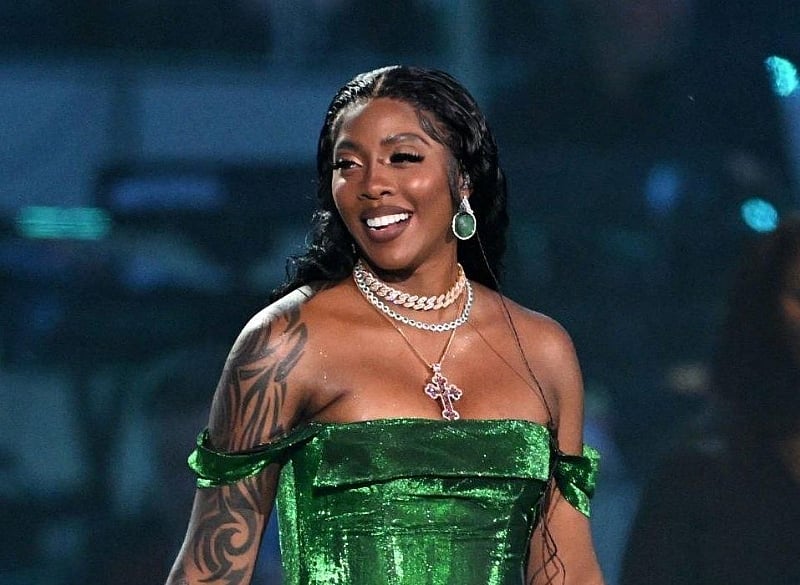Tiwa Savage, a prominent figure in the Nigerian Afrobeats music scene, has voiced her discontent with the persistent criticism she receives regarding her fashion choices, particularly concerning her age. In a recent appearance on the Receipts podcast, she shed light on the double standards she encounters, comparing her experiences to those of international stars like Beyoncé. Savage pointed out that while Beyoncé, also in her 40s, is widely admired for her beauty and confidence in wearing bikinis, she herself faces constant age-shaming and criticism from Nigerians for similar attire. This disparity highlights a cultural bias where Western audiences celebrate the ageless beauty and confidence of older female artists while Nigerian audiences tend to criticize them for similar expressions. Savage’s remarks underscore the inherent contradictions and pressures women face, particularly in the public eye, where they are often judged based on subjective societal expectations tied to age and appearance.
The singer’s frustration stems from the constant scrutiny she faces, where her fashion choices are deemed inappropriate simply due to her age. She questioned the rationale behind this criticism, emphasizing her right to wear a bikini, especially given her confidence in her physique. By drawing a parallel with Beyoncé, Savage exposed the stark contrast in how women of a similar age and stylistic choices are perceived across different cultures. Beyoncé’s confidence and fashion choices are often celebrated as empowering and defying age norms, whereas Savage’s similar choices are met with disapproval and ageist remarks. This cultural difference reveals the complexities of societal expectations placed on women, specifically in the context of aging and self-expression.
Savage’s comments highlight the double standard that exists within the entertainment industry, especially concerning female artists. While Western audiences celebrate the enduring beauty and confidence of older female artists like Beyoncé, Nigerian audiences often criticize their own artists for embracing similar expressions of self-confidence and style. This discrepancy underscores the cultural nuances surrounding aging and the perception of women in the public sphere. It also reflects the internalized societal pressures that women face, where they are expected to conform to specific age-related norms regarding appearance and behavior.
Furthermore, Savage’s statement touched upon the societal expectations of motherhood, where her critics often invoke her son as a reason for her to dress more conservatively. She countered this notion by declaring that her son would see her as a “powerful and beautiful woman,” emphasizing that her attire does not diminish her role as a mother or her positive influence on her child. This response highlights the unnecessary burden placed on mothers to conform to restrictive societal expectations, often at the expense of their personal expression and self-confidence. Savage’s perspective challenges the notion that motherhood necessitates a sacrifice of individuality and asserts her right to embrace her femininity and express herself freely.
The singer’s frustration is palpable as she navigates the complexities of being a female artist in the public eye. She is forced to contend with not only the general pressures faced by women in the entertainment industry but also the specific cultural nuances of Nigerian society. The criticism she receives underscores the challenges women face in maintaining their agency and autonomy over their bodies and self-expression. Savage’s situation exemplifies the ongoing struggle against ageism and the restrictive norms imposed on women, particularly within cultures that place significant emphasis on traditional values and expectations.
In conclusion, Tiwa Savage’s experience sheds light on the pervasive double standards that female artists, particularly those in their 40s and beyond, encounter within the entertainment industry and broader society. Her comparison with Beyoncé highlights the cultural differences in the perception of aging and female self-expression. While Beyoncé is lauded for her confidence and ageless beauty, Savage faces criticism and age-shaming for similar choices. This disparity exposes the complexities and contradictions women navigate as they age, especially in the public eye. Savage’s outspokenness on this issue is crucial in challenging ageist norms and advocating for greater acceptance and celebration of women of all ages and stylistic choices. Her comments also serve as a reminder of the ongoing need for greater understanding and respect for women’s autonomy over their bodies and self-expression, regardless of their age or cultural background.














